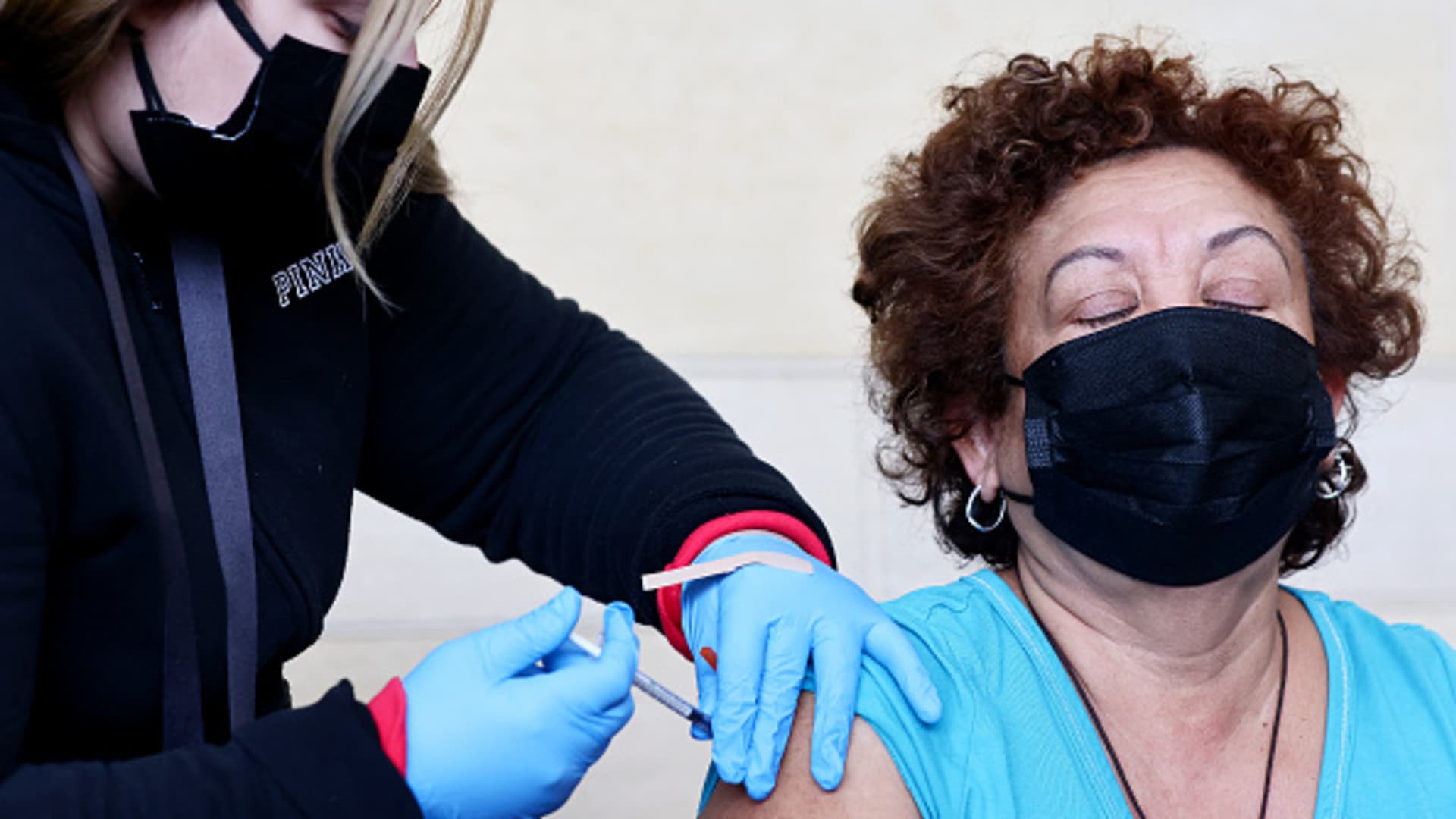Products You May Like
The U.S. Food and Drug Administration‘s independent panel of advisors raised doubts about the need to “periodically” update Covid vaccines, noting that it’s unclear if the virus is seasonal like the flu.
Advisors on Thursday unanimously voted that new jabs for the fall should be monovalent — meaning they are designed against one variant of Covid — and target one of the omicron XBB strains. Those are now the dominant variants nationwide.
But the original voting question included language about whether the panel recommends a “periodic update” to Covid shots.
Dr. Peter Marks, head of the FDA’s vaccine division, asked the panel’s chair to strike the wording from the question after several advisors raised concerns.
“As worded, it seems to be saying, do we agree that there’s gonna be a regular need to update? And I don’t think that’s clear,” said Dr. Arthur Reingold, professor of epidemiology at the University of California, Berkeley.
The panel’s concerns indicate there is still uncertainty around what the Covid pandemic will look like in the years ahead, even as cases and deaths decline nationwide.
The worries are also the latest pushback against the FDA’s proposed shift to annual Covid shots earlier this year – a simplified approach to vaccination that would involve yearly updates to the jabs. That’s similar to how the U.S. rolls out new flu vaccines every fall and winter, which is the season when cases flourish.
But several advisors cautioned against calling Covid seasonal like the flu.
“It’s not clear to me that this is a seasonal virus yet,” said Henry Bernstein, a pediatrician at Cohen Children’s Medical Center.
Dr. Mark Sawyer, professor of clinical pediatrics at the University of California, San Diego, added that describing Covid as “seasonal” could ultimately confuse the public about “when and where they should get vaccinated, and how frequently.”
“I’ll join the choir here. I think using the word season is equally problematic,” said. Dr. Sawyer. “It links the campaign to the influenza vaccine. I understand that it may be convenient and most efficient to give the vaccines together, but it’s only been a few years and we really don’t know what the Covid season is.”
Unlike the flu, Covid’s spread has often been erratic. The virus constantly mutates into new variants and has yet to settle into a predictable seasonal pattern.
In response to the advisors, FDA’s Marks emphasized that Covid shots will likely require another update “at some point.”
“This is not going to be the final formulation for this vaccine forevermore,” he said.
Shifting to an annually updated Covid vaccine is backed by former White House health officials Dr. Ashish Jha and Dr. Anthony Fauci, who believe the country can benefit from adopting a similar approach to the flu shot.
Each year, researchers assess strains of the flu in circulation and estimate which will be the most prevalent during the fall and winter before updating jabs.
“People go and get their annual flu vaccine, if they see this as a routine part of care. I don’t — every time I get a flu vaccine, I don’t think, is this my 28th flu shot or 29th flu — I just think, it’s my annual flu shot,” Jha said Wednesday in an interview on PBS News Hour.
“For most people, if they think of it as their annual COVID vaccine, they get it when they get their flu shot, I think it’ll make it an important difference,” he continued.
Recent polling suggests the public is open to the idea.
More than half of about 1,200 U.S. adult respondents said they would likely get an annual Covid vaccine if it were offered similar to a yearly flu shot, according to an April survey by health policy organization KFF. That includes 32% who would be “very likely” to do so.
It’s unclear how many Americans will roll up their sleeves to get updated shots this fall and winter.
The uptake of the most recent bivalent boosters — which target the original Covid strain and omicron BA.4 and BA.5 — has been sluggish.
Only about 17% of the U.S. population — roughly 56 million people —have received Pfizer and Moderna’s boosters since they were approved in September, according to the Centers for Disease Control and Prevention.
Leading Covid shot manufacturer Pfizer told CNBC last month that an annual Covid schedule could encourage more people to vaccinate each year.
The shift could help people view Covid shots as just another “very natural part” of protecting their health, said Dr. Mikael Dolsten, Pfizer’s chief scientific officer.
Pfizer is already preparing to shift to an annual schedule by developing “next-generation” versions of its shot, which aim to broaden and extend the protection people get from the virus to a full year.
